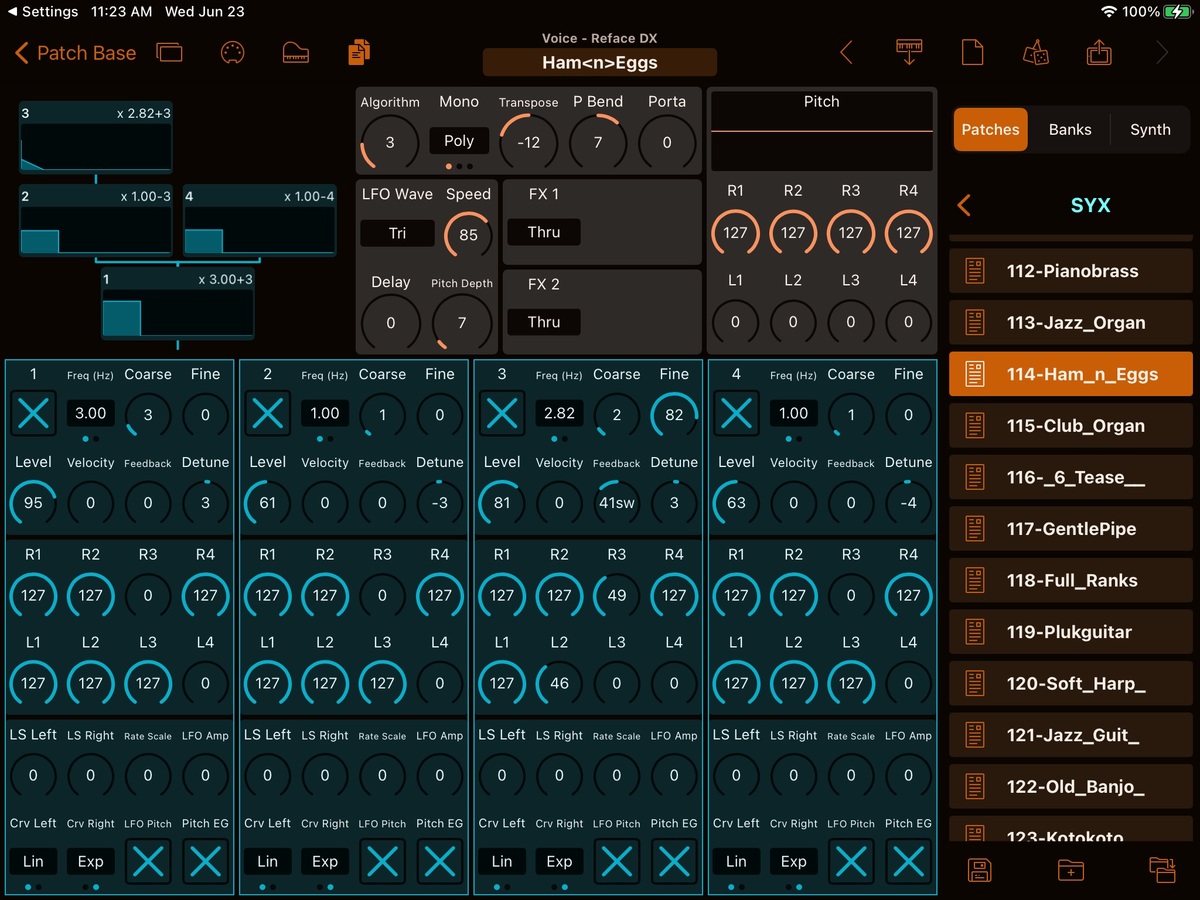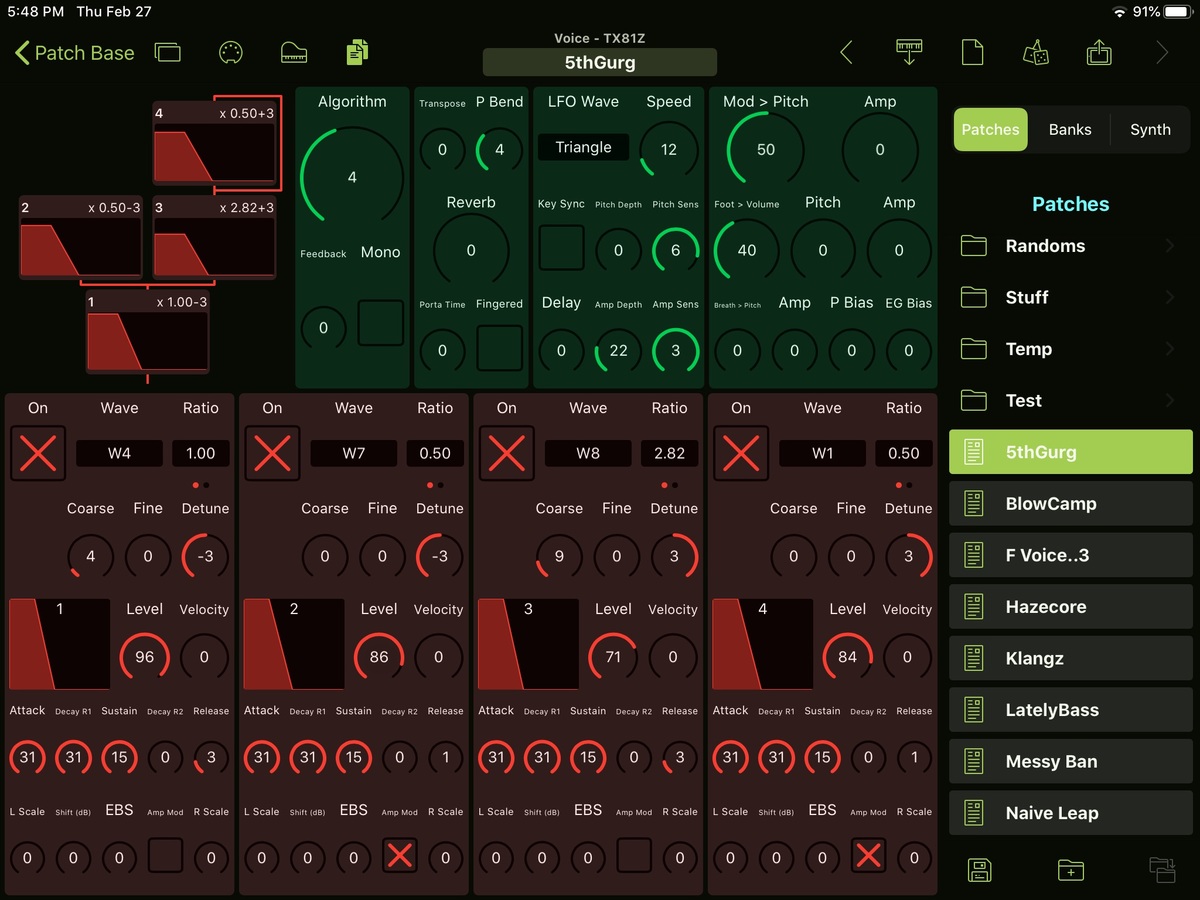

Power supply required is 12vDC with a minimum of 1Amp and the Patch Editor has reverse polarity protection built in. This has added to the price but you get something that will work well when it is supposed to and will last.
Top quality components have been used throughout. The control lights can be dimmed to suit current light levels. For example a foot pedal could be used to control the filter cut off much like a waa waa pedal might. The ext input allows control of any one variable parameter from an external voltage source. All switch positions are remembered for each synth type. The Patch Editor also has a midi channel for it's own midiCC control.  Each synth type has a separate synth midi channel which is remembered. Colours change as controls are moved and each page uses it’s own colour for easy page identification. This is important when unused controls are reassigned as is done in some synth types. Every control identifies itself and it's value on the display in real time. Note, the MKS-70 needs the latest system ROM (v1.08). Can control both the Upper & Lower Tone boards in the MKS-70 & MKS-80 from the Patch Editor directly separately or combined. One midiCC command for filter cutoff adjust, for instance, will output the correct codes for filter cutoff adjust for any selected synth.
Each synth type has a separate synth midi channel which is remembered. Colours change as controls are moved and each page uses it’s own colour for easy page identification. This is important when unused controls are reassigned as is done in some synth types. Every control identifies itself and it's value on the display in real time. Note, the MKS-70 needs the latest system ROM (v1.08). Can control both the Upper & Lower Tone boards in the MKS-70 & MKS-80 from the Patch Editor directly separately or combined. One midiCC command for filter cutoff adjust, for instance, will output the correct codes for filter cutoff adjust for any selected synth. 
This will allow any synth to be controlled via midiCC for software that does not support sysex.
Can translate midiCC to the currently selected patch. This approach has made the Patch Editor very versatile and flexible. Each control in each synth is kept in lookup tables. It includes an internet update system for software changes or new keyboards support, and includes an external input that can be mapped to any continuous control and all the active controls light up to make it easy to use. The 'Patch Editor' can be used in place of a PG-300 or MPG-80 as well as handle midi control of midi and sysex capable keyboards. The problem with these is they only worked on one type of keyboard and were (and still are) expensive and rare. When the complaints started arriving some started making plug in patch editors. 
Anyone who has used one will know how difficult it is to use, especially live. There was a stage when most of the keyboards manufactures went though a process of removing all the knobs and replacing them with a parameter driven system. Each control that is changed will clearly identify itself on the display. Every active control will light up to make fast changes simple and buttons are colour coded depending which state is active. Concepts The Patch Editor has been designed for easy parameter editing for many of the older keyboards with easy to use controls for every synth type.








 0 kommentar(er)
0 kommentar(er)
